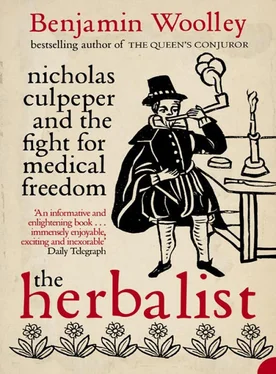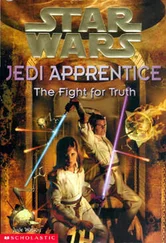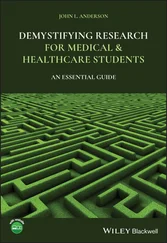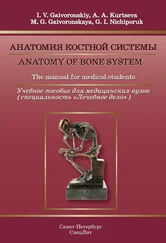And here before him was a little child who, like the Protestant children of God, was without a father. It was his responsibility to take on the role.
The model father was, of course, God. In some moods, this meant for Attersoll a New Testament God: embracing, protective, tolerant. Parents should offer their children ‘good encouragement in well doing’, he wrote, as little Nicholas played around his feet. ‘We are bound to praise and commend them, to comfort them, and to cheer them up.’ Of primary importance was education. Uncultivated childish minds ‘bring forth cockle and darnel’, weeds that grow in cornfields, ‘in stead of good corn’. However, many parents ‘do themselves through humane frailty and infirmity sometimes fail in the performance of this duty’, he noted. They ‘cocker’, pamper, their children ‘and are too choice and nice over them, they dare not offend them, or speak a word against them’. This ‘overweening and suffering of them to have their will too much, God punisheth in their children’ by making them rebellious. So, for the ‘right ordering and good government’ of the home, children must be taught, and their first lesson should be in godly discipline. Here, an Old Testament tone emerged. Youth must ‘learn to bear the yoke of obedience’, and it was the responsibility of parents to place it upon their shoulders: ‘If we have been negligent in bringing [children] unto God, and let them run into all riot, and not restrained them, we have cause to lay it to our consciences, and to think with our selves, that we that gave them life, have also been instruments in their death.’ 28
Nicholas was in some respects a good student of Attersoll’s lessons. As his work in later life would show, he read the classics and scriptures conscientiously, and became mathematically adept. Attersoll also had interesting and unexpected things to say on such matters as astrology and magic. He had an academic, if not practical, knowledge of the stars, noting that they mirrored the hierarchy of heaven and earth in that they ‘are not all of one magnitude, but there is one glory of the Sun, another of the Moon, and another of the Stars for one star differeth from another star in glory’. 29
Discipline was more of a problem. The sparse documentation that survives does not provide details, but young Nicholas did not accept the yoke of obedience willingly. ‘The same affection that is between the Father and the Son, ought to be between the Minister & the people committed unto him,’ Attersoll wrote optimistically in 1612. 30Practical experience seemed to suggest a more negative equation. Just like the villagers of Isfield, Nicholas did not feel affection for his surrogate father, and would not do as he was told. Rumours persisted into his adulthood that Attersoll resorted to locking the boy up in his chamber, and leaving him in the dark. 31
Lessons had to be learned, and Attersoll was uncompromising. The Bible was held over the boy, and its message battered into his head. God, like kings, expected unconditional obedience. Those set over us are put there by God, and it is his will that we submit to them, Attersoll believed. ‘Evil parents are our parents, and evil Magistrates are Magistrates, and evil Ministers are Ministers’, and, though he dare not write it, evil kings are kings – the position that underlay the belief of England’s monarchs since Henry VIII in their divine right to rule and expectation of unquestioning obedience from their subjects. ‘Servants are commanded to be subject to their masters, not only unto them that are good and gentle, but them that are froward [perverse], so ought children to yield obedience unto their fathers.’ 32
Underlying this tough message was Attersoll’s belief in predestination. This was one of the central tenets of Protestant theology, and at the time Attersoll was writing accepted by both the established Church and Puritan radicals. 33God, went the argument, must know in advance who will be saved – the ‘elect’, as theologians called them – and who will be damned. If he did not, then it meant he did not have perfect knowledge of the future, which suggested that his divine powers were limited. Attersoll found confirmation of this principle in the Book of Numbers. The book took its name from the census performed by Moses when the Israelites entered the wilderness of Sinai. ‘We learn from hence,’ argued Attersoll, ‘that the Lord knoweth perfectly who [his people] are.’ But his people, being but human and without perfect knowledge, do not know if they are among the elect. The signs were in their behaviour, which showed whether they tended towards godliness or wickedness. For example, rebellious acts, obstructions in the river of godly authority flowing from heaven, were symptoms of a wicked disposition.
In this fateful atmosphere, every act was subjected to providential scrutiny. The most trivial prank could mean the child was doomed, as deadly a sign as a cough indicating consumption. And whichever destiny was signified, salvation or damnation, nothing could be done about it. ‘God keepeth a tally … & none are hidden from him, none escape his knowledge, or sight.’
No absolution could be provided, no repentance sought, no comfort or consolation given. Every time Nicholas broke the ‘bands asunder’ and cast off ‘the cords of duty and discipline’, and the admonishing finger directed him into the dark, it was not the bogeyman who awaited him there, but Satan. 34
The daylight world of the scullery was Nicholas’s escape from this predestinarian tyranny. This was where the women were, his adoring mother Mary, wives from the village, the maid. Here, salvation and damnation were replaced by blood and guts. Peeping over counter-tops, crouched in a corner, scurrying alongside blooming skirts, he could watch the preparation of meals and medicines, the skinning of a ‘coney’ (rabbit), its fur being dipped in beaten egg white and applied to heels that were ‘kibed’ or chapped by worn and ill-fitting shoes; cowslips being candied in layers of sugar; tangles of fibrous toadflax being laid in the water bowls to revive ‘drooping’ chickens. 35
No fear of religious instruction here. Women were not expected to engage in such pursuits, at least not in Attersoll’s household. He acknowledged that there were ‘many examples of learned women’, his own daughter perhaps among them; but the Bible ‘requireth of them to be in subjection, not to challenge dominion’ of male discourse. The ‘frailness and weakness’ of their sex made them ‘easier to be seduced and deceived, and so fitter to be authors of much mischief’. 36Their place was in the pantry, their role to preserve the frail body, while the male ministry of Attersoll administered to the soul.
Thus, in the company of women, Nicholas encountered the more practical arts of nurturing and healing. Food and physic, chores and hygiene, were inextricably entwined. Here Mary, her awareness sharpened by the tragedy in Ockley, would treat wounds and mix medicines, as well as feed the family and clean the house, using traditional recipes, ingredients and methods handed down the generations, or shared through the village.
The supplies needed to sustain this regime all came through the back door, and it was a young boy’s job to go and fetch them. Outside lay one of the most beautiful and botanically rich areas of the country, a fertile valley on the southern fringes of the Ashdown Forest, the enchanted place into which future generations of children were enticed when A. A. Milne made it the setting for Winnie the Pooh’s Hundred Acre Wood. This landscape became Nicholas’s catechism, the meadows and woods his Sinai desert, the local names of medicinal flowers and shrubs his census of the elect. He attained an intimate botanical knowledge of Sussex, learning, for example, where to find such ingredients as ‘fleur-de-luce’ (elsewhere known as wild pansy, orris, love-in-idleness, and heartsease, the constituent of Puck’s love potion in Shakespeare’s A Midsummer Night’s Dream ) and ‘langue-de-boeuf’ (bugloss or borage), noting in later life how their ‘Francified’ names echoed the Norman invasion, which had taken place in 1066 at nearby Hastings.
Читать дальше












